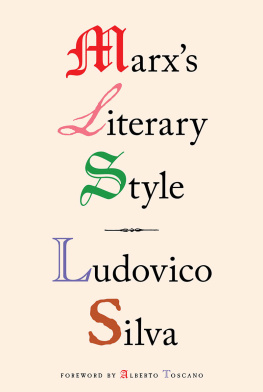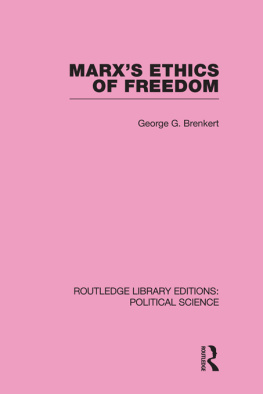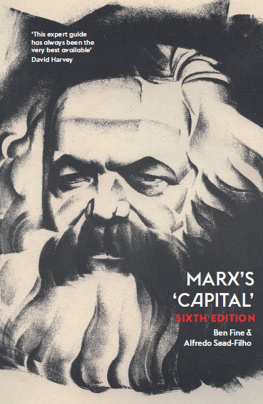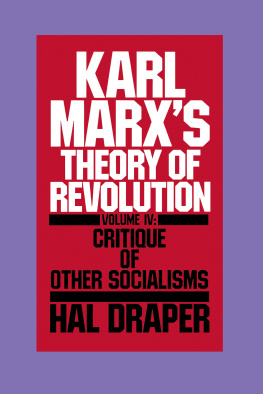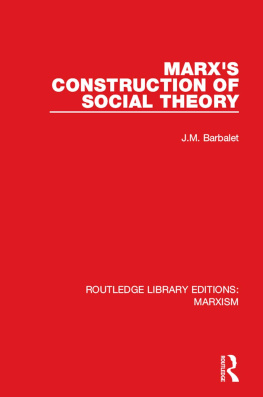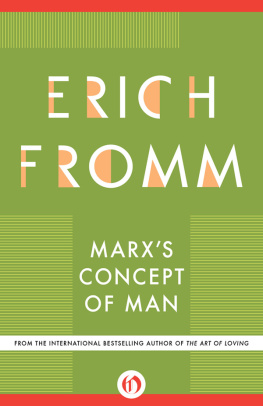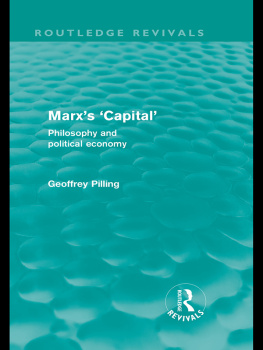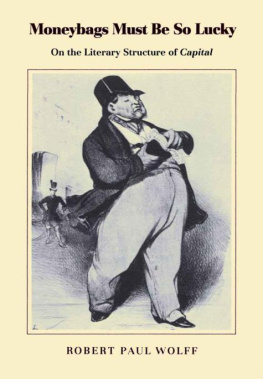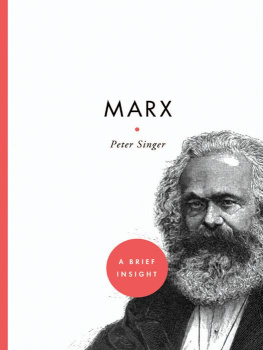Contents

Marxs Literary Style
A poet, essayist, and philosopher in the Marxist tradition, Ludovico Silva Michelena (193788) was one of the most important Venezuelan intellectuals of the twentieth century. His books include La plusvala ideolgica (Ideological Surplus-Value) and Anti-manual para uso de marxistas, marxlogos y marxianos (Anti-Handbook for Marxists, Marxologists, and Marxians).
Marxs Literary Style
Ludovico Silva
Translated by Paco Brito Nez
Foreword by Alberto Toscano

First published in English by Verso 2023
Translation Paco Brito Nez 2023
First published as El estilo literario de Marx
Siglo XXI Editores 1975
Foreword Alberto Toscano 2023
All rights reserved
The moral rights of the authors have been asserted
1 3 5 7 9 10 8 6 4 2
Verso
UK: 6 Meard Street, London W1F 0EG
US: 388 Atlantic Avenue, Brooklyn, NY 11217
versobooks.com
Verso is the imprint of New Left Books
ISBN-13: 978-1-83976-553-7
ISBN-13: 978-1-83976-554-4 (UK EBK)
ISBN-13: 978-1-83976-555-1 (US EBK)
British Library Cataloguing in Publication Data
A catalogue record for this book is available from the British Library
Library of Congress Cataloging-in-Publication Data
A catalog record for this book is available from the Library of Congress
Typeset in Minion by Biblichor Ltd, Scotland
Printed and bound by CPI Group (UK) Ltd, Croydon CR0 4YY
I dedicate this essay to my dear teacher Juan Garca Bacca: a great scholar of Marx, a great scholar of the relationship between science and style, and a great stylist in his own right. I am sure that in writing about Marxs style, he would have enjoyed starting out from the following words by Machado and Marx:
Words, as opposed to stones, or colour-imparting substances, or moving air, are, in and of themselves, signifiers of the human, which the poet must imbue with new meanings. A word is, in part, an exchange-value, a social product, a tool of objectivity (objectivity meaning, in this case, a convention between subjects), and the poet aims to make it into the means of expression of an individual psyche, a singular object, a qualitative value. The difference between a word spoken by everyone and a lyric word is the same as the difference between a coin and a piece of jewellery made from the same metal.
Antonio Machado
Language is practical consciousness.
Karl Marx
Contents
Slo desde la tierra se puede ver el cielo
L. Silva, Carta materialista a mi madre (1973)
Marking the 150th anniversary of The Communist Manifesto with an article on that texts style, the novelist and semiotician Umberto Eco prefaced his remarks by calling for the republishing of Lo stile letterario di Marx, the 1973 Italian translation of the book you hold in your hands. While the question of Marxs style has not been ignored by his legions of commentators (and detractors), Ecos reminiscence testifies to the lack of concerted treatments of how Marx produced himself as an author. That said, Marxs style was not a marginal matter for his contemporaries. His comrade and disciple, Wilhelm Liebknecht, and his first biographer, Franz Mehring socialist activists who were also academically trained philologists both illuminated aspects of Marxs literary and critical artistry that Silvas volume explores with nuance and combativeness.
In his Biographical Memoirs (1896), Liebknecht pushes back against claims that the author of Capital was plagued with a bad style or was altogether bereft of one. While castigating those philistine polishers of words and twisters of phrases who have not understood and were not capable of following the flight of [Marxs] genius to the highest peaks of science and passion and into the lowest depths of human misery and human baseness, Liebknecht underscores that such pejorative judgements stem from the incapacity to see the signature of Marxs thought and person behind the surface heterogeneity of his products. The plethoric sarcasm of Herr Vogt, the dialectical complexity of Capital, the polemical bravura of the Eighteenth Brumaire all corroborate the principle that the style is not only the man, it is also the subject-matter and it must be adapted to the latter. Liebknecht, editor of the Social Democratic Party newspapers Der Volkstaat and Vorwrts, is particularly attuned to the political violence of Marxs craft:
Is the Eighteenth Brumaire unintelligible? Is the dart incomprehensible that flies straight at his target and pierces the flesh? Is the spear unintelligible that, hurled by a steady hand, penetrates the heart of the enemy? The words of the Brumaire are darts, are spears they are a style that stigmatizes, kills. If hate, if scorn, if burning love of freedom ever found expression in flaming, annihilating, elevating words, then it is surely in the Eighteenth Brumaire, in which the aroused seriousness of Tacitus is united to the deadly satire of Juvenal and the holy wrath of Dante. The style is here what it the stylus originally was in the hands of the Romans a sharp-pointed steel pencil for writing and for stabbing.
A few years later, on occasion of the twenty-fifth anniversary of Marxs death, Mehring would remark that, while a comprehensive inquiry into his style would make a signal contribution to the understanding of Marxs work, the task would be difficult, and it is not one of those immediately incumbent on his heirs busy as they were struggling over how best to actualize his political legacy. Yet Mehring did think it was imperative to provide some local resistance to bourgeois scientists maligning of Marxs style and method, which came down to one question:
From Herr Wilhelm Roscher down to the youngest university instructor, they all complain of his passion for metaphor. Marxs fondness for the use of figurative language is indisputable: but what these adversaries mean to convey by the accusation is that though his intelligence may have been brilliant, it was certainly not acute; that, entangled in obscure mysticism, he could only elucidate even the doctrine of historical materialism quite vaguely, and with the use of a patchwork of imagery.
Mehring countered this objection first by referring to Aristotles view of genius as grounded in the capacity to recognize likeness (to homoion theorein), and then via a portable history of the theory of metaphor in German letters, beginning with Luthers Bible translation (formative for Marx), moving through the metaphorical inflation of movements like euphuism and Marinism, and culminating in the consolidation of a thinking and practice of metaphor in Lessing, Goethe and Hegel a consummate metaphor-maker who bequeathed to Marx some of the literary and cognitive tools with which he would forge dialectical images of capitals metaphysical manifestation, like the section of Capital on commodity fetishism, which still proves so indecipherable to bourgeois economists. They, Mehring sardonically observes, counter Marxs use of metaphors with what they advertise as conceptual analysis, but which, on closer inspection, turns out to be an unending shadow-dance of metaphysical notions, which momentously glides along the walls of the capitalist prison-house, trying to hold at bay the racy metaphors of revolutionary dialectic.

